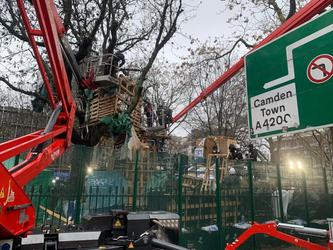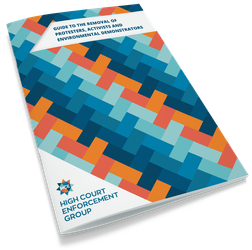Dealing with student protests on the university campus

Over recent months there have been numerous students protests, not just in the UK, but around the world.
It is likely that these will continue into the new academic year, which is just round the corner.
Safety is paramount
We believe in the right of all to peaceful protest – it is a cornerstone of our democracy.
This article does not seek in any way to comment on current affairs. What it will address is what universities can do to ensure that protests are managed correctly to keep all involved safe.
When does a university need to stop a protest?
We will also look at what a university can do in the event of them needing to step in to stop a student campus protest, which may happen for a number of reasons, including preventing crime or disorder, or protecting the rights and freedoms of others.
This can happen when others, who are not part of the student body, attempt to join the protest, perhaps with the aim of increasing the “heat” of the protest.
Our four top tips for university protests
At the National Eviction Team, we have unparalleled experience in dealing with protestors in many different circumstances, including universities, where we have worked with a number of UK universities to support them in dealing with student protests.
1. Prepare risk assessments
Risk assessments are vital as they are designed to protect all involved: protesters, university security guards and members of staff, non-protesting students, press representatives and members of the public.
Read more about how we develop risk assessments, operational plans and manage dynamic risk assessment.
2. Prevent external parties from joining the protest
This can be challenging on an open campus. You may want to introduce measures such as a requirement for students and staff to always wear their identity badge and request that those without the correct ID leave the campus immediately.
3. Monitor social media
In our experience, many protests are organised online, with X (formerly Twitter) being a popular platform.
We recommend that you actively monitor all the public social media platforms to be forewarned about either planned protests or planned escalations. Forewarned is forearmed.
4. Prepare an operational plan
Crisis management is all about preparing your response to critical situations. As part of that, an operational plan that covers a number of scenarios will develop preparedness.
Free consultation
At the National Eviction Team, we offer a free initial consultation.
Get in touch with us to find out how you can prepare for multiple eventualities and have a comprehensive risk assessment and operational plan in place if you do need to step in, should a student protest at your university become dangerous to all involved.



